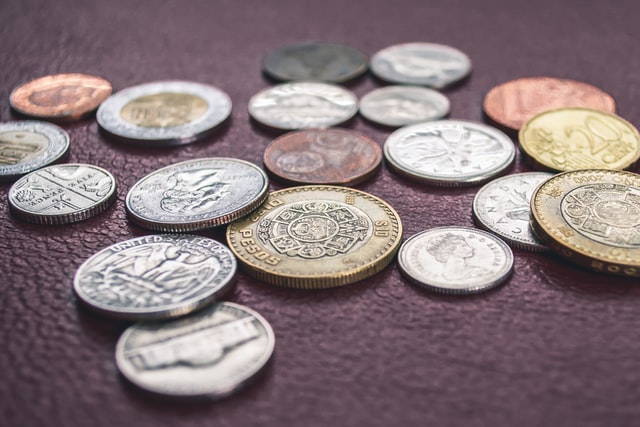
It’s one of the golden rules of trading not to use the money you cannot afford to lose. No matter how good you are, losses are inevitable, and experienced traders understand that loss doesn’t equal failure. In trading, loss is an opportunity to understand the market’s moves and grow by learning from your mistakes. However, to prevent trading losses from becoming financially crippling and pushing you to make emotional decisions, you need to have sufficient disposable income. You should never trade with money from emergency savings nor with the money from essential expenses. You might win once or twice, but this a risky strategy with serious consequences that no professional trader will ever recommend.
The good news is that you don’t necessarily need a lot of money to trade, especially as a beginner. The average broker requires a minimum of $200 to open an account, and around $1,500 is usually enough to execute your strategy. Of course, the minimum amount will vary depending on your chosen trading strategy. If you wouldn’t feel more confident investing more, but you don’t know how to boost your disposable income, these strategies will help:
Track your spending to eliminate unnecessary expenses
Tracking your day-to-day spending is a good money management strategy in general, whether or not you want to trade. Most of us have a general idea of how much we spend every month, but it’s not until we itemize expenses and make an average that we realize where the money goes.
For example, paying $5 for coffee to go every day doesn’t sound like much, but if you add them up, you spend $35 for coffee per week and $140 per month – which is great if you love that coffee, but if you only buy it out of habit and barely touch, that’s $140 that could be put to good use. And coffee is just an example. Most of our budgets leak from somewhere, but we don’t know from where.
The best way to avoid unnecessary expenses is to track what you spend your money on every day by using an app. Yes, even those small purchases that may not seem to matter. At the end of the month, you’ll see a chart of how much money you spend on different things. It’s usually at this time when people realize that they spend too much money on takeaway food, on clothing, gas, car accessories, and so on, and start taking measures to reduce unnecessary expenses. For example, you can make it a goal to cook more at home, cancel the subscription services you don’t use, downgrade your cable plan, or buy pre-loved clothes instead of new ones.
Get a lucrative side hustle or hobby.
Getting a second job may sound like the ultimate way of boosting your disposable income. However, the sacrifices that come with it may not be worth it because you’re essentially giving up your personal time and mental health. Instead, you might want to consider getting a side hustle or monetizing one of your hobbies, which could bring in more disposable income than you expect.
Take gambling, for example. If you’re good at it, and you’ve honed your skills over the years, there are some clever ways you can maximize how much you earn from it. For example, you can look for the best online casino to play casino games, which will offer you bonuses, and you’ll be able to turn $20 into $200. Bob Casino is one of the online platforms that stands out, so if you don’t know it, it’s worth giving it a shot.
It’s important to point out that gambling is much more profitable than it was in the past, and you don’t need to deposit a lot of money. Here’s how to claim your no deposit bonus at Bob Casino and take advantage of their daily offers.
This is just one example of a monetizable hobby, but it’s not the only one. Most people don’t realize it, but anything you are good and do for fun can bring you money. Even playing video games can boost your disposable income if you get into streaming. You can offer private classes in your free time, design T-shirts, become an Uber driver, sell small services on Fiverr, and much more. Then, you can set that money aside for trading, without worrying that you’ll sacrifice your primary source of income.
As always, it’s essential to be balanced and apply common sense. Only trade using the money you physically have, and that’s not vital for everyday expenses.
Save little, but often.
Last but definitely not least, save as much money as possible, even if it’s in small increments. Most people wait until they have a larger sum of money to deposit to their savings account, but based on this mentality, you might not deposit anything at all.
Even if it’s not as satisfying, setting aside $5 to your savings is a small step that will amount to a satisfying outcome. If you turn it into a habit, money will slowly add up. Ideally, you should create a separate account only for trading; this way, it will be easier to keep track of the money, and you won’t mix up the expenses between them.
If you don’t have enough now, don’t worry. It’s better to wait one year than to take out a loan or sacrifice your family budget for the promise of hypothetical returns. A simple hack that can yield impressive results is to round up your payments. For example, if you pay $16 with your main debit card, you can round up to $20, and those $4 will go to a separate account, where you earn money for trading. The amount is small enough not to affect your financial security, but in a few months, you may just have enough disposable income to start trading.





![Binance Review: How the Crypto Exchange Works [2024]](https://www.feedroll.com/wp-content/uploads/2024/03/binance-trading-100x100.png)



